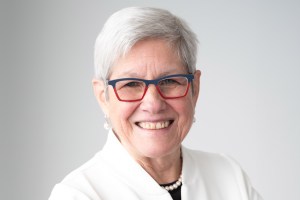Backlash from ‘Roe v. Wade’ continues to shape public discourse
Forty years after the Supreme Court handed down its landmark decision in Roe v. Wade, the backlash it generated continues to shape the public discourse, says Harvard Law School Professor Michael Klarman, an expert on constitutional law and constitutional history.
“The justices who decided Roe almost certainly did not expect the kind of political backlash that materialized in its wake,” Klarman said. “They thought they were pushing the country further in the direction it was inexorably moving in, which was progressive reform of abortion statutes.”
At a March 12 event commemorating the 1973 decision guaranteeing a woman’s right to an abortion through the second trimester, Klarman explored the ways that public response to the controversial Supreme Court decision sparked a strong resistance that redrew the lines on the cultural battlefield. Harvard Law Students for Reproductive Justice hosted the talk.
Klarman offered several explanations for why the court ruled the way it did in the case and how the country responded. For starters, the Supreme Court was fooled by opinion polls showing that 64 percent of Americans in the summer of 1972 thought that abortion should be a private decision between women and their doctors, even while 32 states still had restrictions allowing abortions only when a woman’s life was in jeopardy. The court might also have been convinced that opposition to abortion was mostly coming from a vocal Roman Catholic minority, which had also opposed expanding access to contraceptives.
Read more about Klarman’s talk on the Harvard Law School website.




